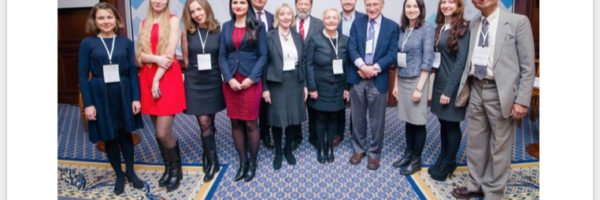Improving Transparency and Effectiveness of Public Procurement in Ukraine through Cooperation with Civil Society was a program implemented from the Fall of 2016 through November 2019. It focused on building the capacity of Ukrainian Civil Society Organizations (CSOs) on how to monitor public procurement under the country’s new e-procurement system – “ProZorro.”
Public procurement is a major item in state and local government budgets in Ukraine. There is considerable evidence that this procurement could be done more efficiently and more transparently to reduce the corruption that is plaguing the country.
A law enacted in 2015 mandated the use of an e-procurement system – ProZorro – from municipal to national levels. The new system makes it easier for CSOs to monitor procurement in all of its phases, but training is necessary to enhance their ability to do so in an informed and responsible manner. Monitoring procurement requires technical knowledge of the procurement process as well as a good understanding of the legal and institutional environment in which procurement decisions are made.
Improving Transparency and Effectiveness of Public Procurement in Ukraine through Cooperation with Civil Society, co-funded by the European Bank for Reconstruction and Development (EBRD) and PTF, focused on building the capacity of CSO to serve as independent monitors of public procurement procedures and processes, with the goal of enhancing the transparency and fairness of public procurement using.
PTF worked with the Kyiv School of Economics (KSE) to implement the program to strengthen the capacity of Ukrainian CSOs to monitor public procurement of goods and services. The program developed tools and to train CSO staff and journalists to identify irregularities and bring evidence-based reports of abuse to the attention of the responsible authorities using information generated by the Prozorro system.
PTF added a small grant component to fund three CSOs (selected on the basis of their responses to a Request for Expression of Interest) each for a period of six months (ending up becoming nine months) to engage in monitoring. The education sector was of interest for each of the three CSOs, so the funding from PTF stipulated a focus on that sector. In addition to funding, PTF also provided mentoring, primarily through its local representative based in Kyiv.
The results of the pilot monitoring were mixed. The CSOs reported identifying many irregularities, but their success in having official agencies respond to their requests for review and redress typically went unanswered. However, a six-month period is short, and it is conceivable that a longer period of funded monitoring might have yielded better results.
Overall, the training has measurably enhanced the knowledge of CSOs in how procurement works, how to identify suspicious data, evaluate the potential for abuse and gather supporting information to refer concerns to agencies charged with investigation and resolution. The existence of ProZorro and its related tools is a significant contribution to enhancing the transparency of public procurement and improving the quality of public goods and services to the citizens of Ukraine.
It is best put training to use soon after the knowledge and skills are acquired. While some of the trained CSOs may have sufficient organizational depth to put into practice what they learned, many operate with volunteers and on a shoestring budget. Furthermore, the ability to successfully promote effective and long-term engagement in public procurement monitoring by well-trained CSOs requires a favorable and stable legal and political environment, including widespread acceptance among procuring entities, control bodies and contractors and a willingness to act on the findings of irregularities. It also requires the development of systematic strategies and implementation plans by CSOs involved, continuous capacity building, and last but not least, sufficient funding for them to carry out monitoring over many months or even years.
PTF therefore recommends that future projects include post initial-training funding for successful CSOs to engage in actual monitoring for a period of at least two years during which they would receive technical support and continuous training. Such funding would preferably come from a neutral source, e.g., multilateral or bilateral donors, but business associations or industry groups could also provide such funding, provided they do not pose a conflict of interest for the independent monitoring activities.


